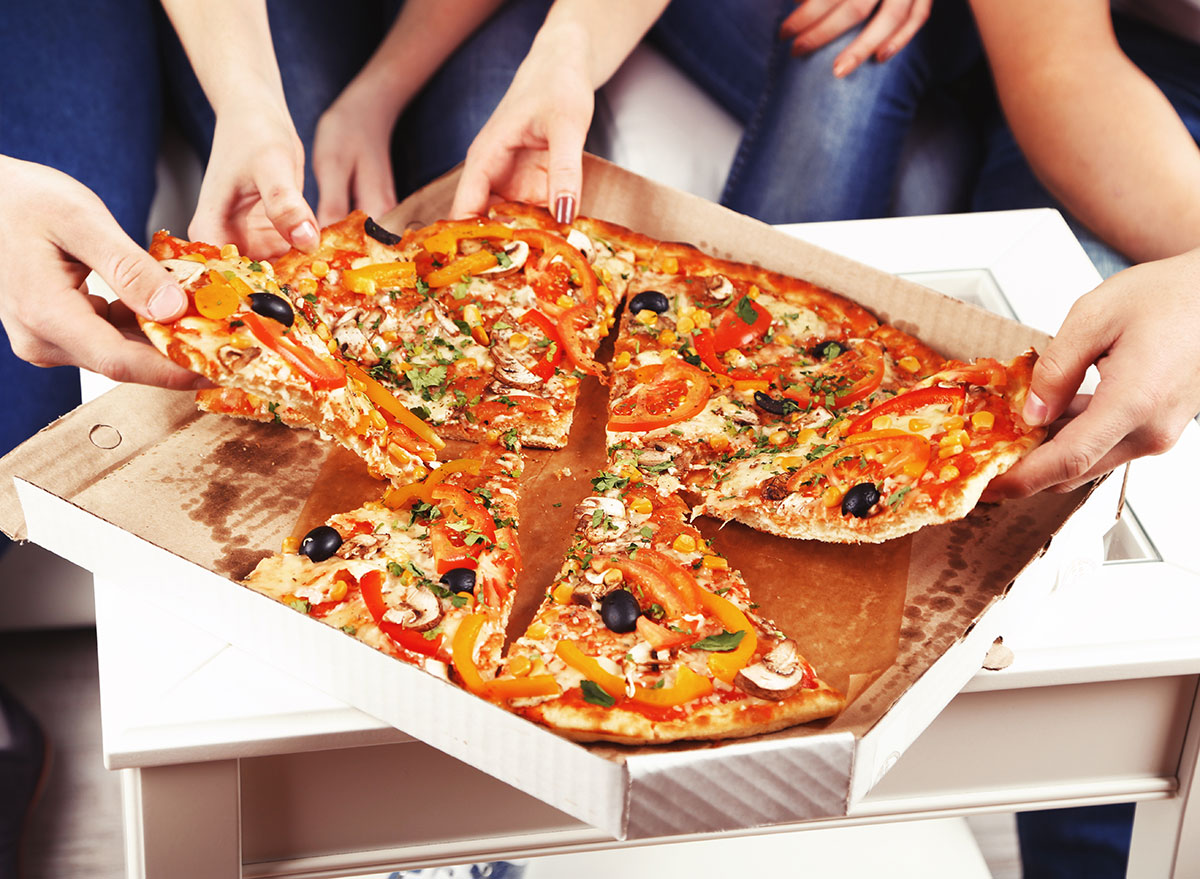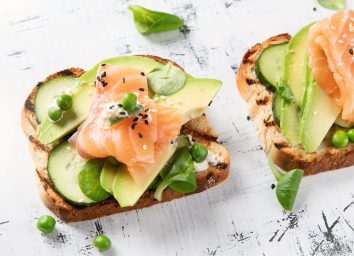This New Diet Wants You to Eat More to Weigh Less

Most dietitians and doctors would say the key to weight loss is decreasing caloric intake. Numerous fad diets generally focus on this model. Intermittent fasting limits when you eat (no late-night snacking), low-carb and keto have you leaving those highly caloric starchy foods behind, and even Weight Watchers has you focusing on intake with their famous point system. However, there is one fad diet encouraging consumers to do the exact opposite by eating more food to lose weight. It's called reverse dieting.
Does eating more to lose weight actually work? Plenty of health experts would say so, but in order to truly understand the effects of reverse dieting on your metabolism and overall weight loss goals, we turned to the research as well as Amy Goodson, MS, RD, CSSD, LD, and author of The Sports Nutrition Playbook, to learn the intricacies of this diet—and if it's actually successful.
For more healthy eating tips, make sure to check out our list of 21 Best Healthy Cooking Hacks of All Time.
What is reverse dieting?
Reverse dieting is meant to aid with weight loss and energy levels by building a person up to their "pre-diet" caloric intake and boosting their metabolism. After going on a diet, reverse dieting encourages dieters to gradually increase your calories for several weeks or months. In theory, this should keep your metabolism high, boost energy levels, reduce hunger, and help with weight loss plateaus.
According to Healthline, reverse dieting is a popular diet for bodybuilders and some athletes that are looking for "increased energy levels while maintaining weight loss and body composition."
"Many athletes that restrict and refeed are doing it for a specific goal like a bodybuilding or bikini contest," says Goodson. "It requires them to reach a normally abnormal weight and body composition for a short period of time, then refeed back to what is likely more normal."
To follow reverse dieting, the consumer would increase their intake by 50 to 100 calories a week above your baseline, and you would do this for about 4 to 10 weeks until you reach your pre-diet intake.
"This is not seen as much in sports where performance is the goal like team sports and running, as you simply cannot operate on too few calories or an athlete is likely to see performance detriments," says Goodson. "The restricting and refeeding seems to be more centered around what an athlete looks like versus how he/she performs."
Because reverse dieting also encourages consumers to eat at a normal caloric intake for their body, your body's metabolism will respond to it, as well as your hunger hormones. By increasing your calories, your leptin levels also increase, which are the hormones that make you feel full and satisfied.
Does it actually work?
While the idea of eating more to lose weight sounds intriguing, unfortunately, there's not enough research to prove that reverse dieting actually works with long term weight loss.
The theory behind reverse dieting comes from a few studies that prove calorie deficits can also cause your metabolism to slow so your body can conserve energy. One study published by the Obesity Society Research Journal focuses on metabolic adaptation for participants of "The Biggest Loser" competition, which spotlights participants with significant weight loss that experienced metabolic slowing after 6 years. However, weight regain was not significantly correlated with metabolic adaptation, according to their research.
"Most [of the reverse dieting success] is anecdotal based on personal experience," says Goodson. "In many cases with the body, when you provoke change, it will change. It is also thought that reverse dieting may help people like bodybuilders minimize the oftentimes binge eating that happens after a show by gradually refeeding the body. One of the biggest challenges is that to do [this] correctly, it is a very meticulous process of both counting calories and adding them back in, that the average person is likely not going to be willing to do it."
In terms of weight loss, there still isn't enough research to prove that this works. The Journal of International Society of Sports Nutrition did a study regarding athletes and weight loss, which does say that "more research is needed to verify the efficacy of periodic refeeding and reverse dieting in supporting prolonged weight reduction." They also said that to accomplish weight loss goals, it is better to focus on small energy (calorie) deficits for slower weight loss, which won't have such a serious impact on the speed of your metabolism or your hunger hormones.
"This is definitely designed for people that participate in activities where severe restriction is caused to reach a short-term goal, like in bodybuilding, physique, or bikini competitions," says Goodson. "The average person should not restrict and refeed as it can cause issues with metabolism long term, which could result in a harder time losing weight in the future."
Slow and steady wins the race.
We would all love the excuse to eat another donut…or two. But sadly, with not enough research to prove that reverse dieting works for weight loss—and a lack of focus on overall nutrition—it seems that reverse dieting isn't the weight loss program that provides satisfying, long-term results.
"If you have ever heard the term, slow and steady wins the race, that is the case with weight loss," says Goodson. "If you lose it overnight, one of two things typically happen, you lose water weight and likely some muscle mass and/or you are likely to regain it due to the diet not being sustainable over time."
Reverse dieting has a serious focus on caloric intake. And while knowing the proper calorie budget for your body is important for weight loss, it's also majorly important to focus on the types of foods that your body is consuming. Simply eating more calories won't totally satisfy your satiety levels (sorry, donuts). Instead, a focus on foods with a high amount of fiber (which do aid in weight loss), good healthy fats (avocados!), and lean proteins are going to get you a lot farther than any fad diet ever could.
"The reality is, eating small, frequent meals with high-fiber carbohydrates, high-quality protein, some healthy fat, fruits, and vegetables, as well as consistent exercise, is what can help with long term weight loss," says Goodson. "If you need to lose weight, you must take in fewer calories than what you need to maintain your weight. However, doing that in a balanced way, with nutrition distributed over the course of the day, is always going to be the safest, satisfying, and easiest to sustain method."
Study after study says that small, incremental changes can make a big difference for weight loss long term, and won't severely affect your metabolism as it did for crash dieters on the "Biggest Loser". Weight loss actually doesn't have to be so calculated. In fact, if you focus on good quality foods, you'll see results. To get started, here are the 25 Best Weight Loss Tips from Doctors.








